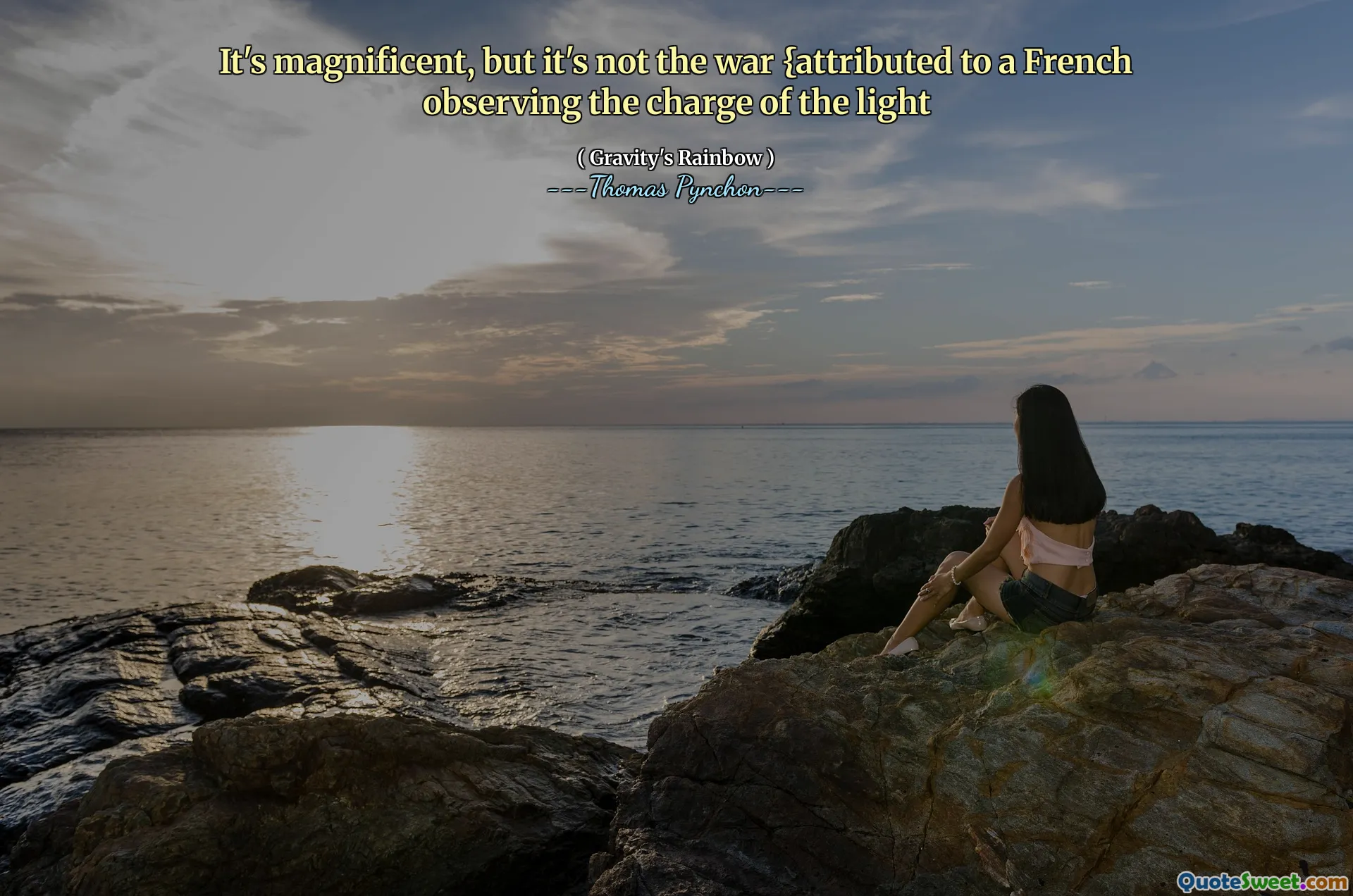
It's magnificent, but it's not the war {attributed to a French observing the charge of the light
The phrase "It's magnificent, but it's not the war," attributed to a French observer witnessing the Charge of the Light Brigade, encapsulates the stark contrast between the romanticized view of warfare and the grim reality of battle. This observation reflects a sense of awe at military maneuvers while acknowledging the disconnection from the actual horrors and chaos of war. Such sentiments often arise in discussions about the glorification of heroic actions on the battlefield, which can overshadow the brutal truths of conflict.
The observation serves as a commentary on how war is portrayed in culture and literature, exemplified in works like Thomas Pynchon's "Gravity's Rainbow." The book critiques the romanticized ideals associated with warfare, drawing attention to the consequences and suffering that accompany grand events. By examining both the beauty and brutality of war, the quote invites a more nuanced understanding of the experiences of those involved, emphasizing that while battlefield bravery may appear magnificent, it is embedded in a tragic context.





